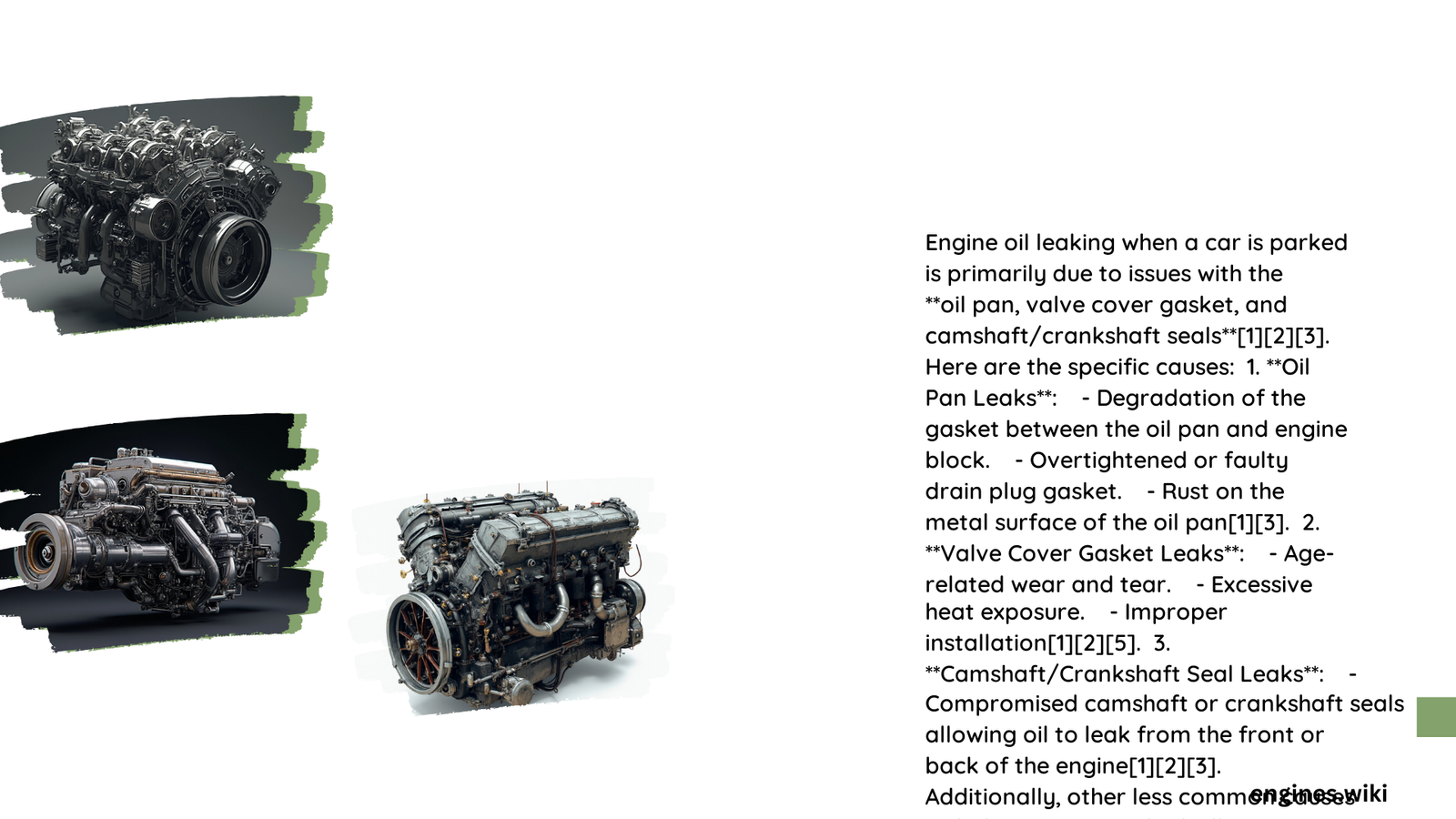Engine oil leaking when a car is parked represents a critical automotive issue that demands immediate attention. This phenomenon can signal underlying mechanical problems ranging from minor seal deterioration to significant gasket failures. Ignoring these leaks can lead to catastrophic engine damage, reduced lubrication, and potentially expensive repairs that could compromise your vehicle’s long-term performance and reliability.
What Causes Engine Oil to Leak When Car Stops?
Why Do Oil Puddles Form Under Parked Vehicles?
Oil puddles underneath a stationary vehicle typically indicate compromised engine sealing mechanisms. These leaks can emerge from multiple potential sources:
Primary Leak Locations
- Oil pan gasket
- Valve cover gasket
- Crankshaft seals
- Oil filter housing
- Drain plug area
How Serious Are Engine Oil Leaks?
| Leak Severity | Potential Consequences | Recommended Action |
|---|---|---|
| Minor Leak | Gradual oil loss | Monitor and repair soon |
| Moderate Leak | Potential engine damage | Immediate professional inspection |
| Major Leak | High risk of engine failure | Urgent repair required |
What Visual Signs Indicate an Oil Leak?
Identifying Leak Characteristics
- Color: Dark brown or black oil puddles
- Consistency: Slick, oily texture
- Location: Directly beneath engine compartment
- Odor: Burnt oil smell
How to Diagnose Oil Leak Sources?
Systematic Inspection Approach
- Clean parking surface before parking
- Check oil levels regularly
- Inspect underneath vehicle
- Look for stains on engine components
- Use UV dye for precise leak detection
What Are Potential Repair Costs?
Repair costs vary based on leak location and severity:
- Oil Pan Gasket: $200 – $500
- Valve Cover Gasket: $100 – $300
- Oil Filter Replacement: $10 – $50
- Crankshaft Seal: $250 – $600
Can Environmental Factors Impact Oil Leaks?
External Influences
- Temperature fluctuations
- Parking surface conditions
- Vehicle age
- Maintenance history
- Seal material degradation
What Preventive Measures Help Avoid Leaks?
Maintenance Strategies
- Regular oil changes
- Timely gasket replacements
- Avoid extreme temperature parking
- Use high-quality engine oils
- Annual comprehensive vehicle inspections
When Should You Seek Professional Help?
Warning Signs Requiring Immediate Attention
- Persistent oil puddles
- Rapid oil level drops
- Blue exhaust smoke
- Burning oil smell
- Dashboard warning lights
Expert Recommendations

Professional mechanics emphasize that early detection and proactive maintenance can prevent costly engine repairs. Always address oil leaks promptly to maintain your vehicle’s performance and longevity.
Technical Insights
Modern vehicles utilize complex sealing technologies, but wear and thermal stress inevitably compromise these systems. Understanding your specific vehicle’s maintenance requirements is crucial for preventing unexpected oil leaks.
Reference:
1. Colony One Auto Center – Oil Leak Guide
2. Integrity 1st Automotive – Leak Diagnostics
3. US Auto Glass – Comprehensive Leak Analysis
